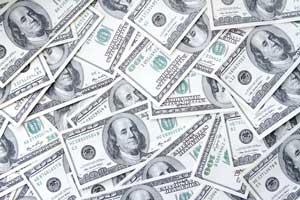Four Things China Could Do to Address Capital Outflows

The Chinese government holds more foreign exchange reserves than any other country, but those assets are dwindling. A recent Economic Synopses essay explored how can China respond, and what these responses might mean for the U.S. economy.
Assistant Vice President and Economist Christopher Neely noted that China built up these reserves because the Chinese sell more goods and services than they purchase. This surplus indirectly went into buying foreign assets.
However, Neely noted that the People’s Bank of China (PBC) has been indirectly selling some of these assets to domestic residents. These residents have been diversifying their portfolios as the Chinese economy slows and domestic real estate remains highly priced. Neely wrote: “Although China has very substantial reserves, continued outflows will reduce reserves below desired levels and eventually the authorities may have to choose some combination of policies to stem these outflows.” He noted four potential responses to stemming the tide of capital outflows.
Restricting Foreign Asset Purchases
Neely pointed out that China has long had regulations on international purchases and sales of assets. He wrote: “The purpose of these capital controls is to reduce the volatility of such flows (for stability) and to skew the flows toward foreign direct investment (FDI), which is seen as being stable and encouraging technology transfer.”
The author noted that this particular path wouldn’t really affect the U.S. economy, but it wouldn’t be in line with China’s goal of reducing financial regulation.
Tightening Monetary Policy
Neely also noted that China could increase reserve requirements, raise domestic interest rates or both. He wrote that higher rates would make Chinese bonds relatively more attractive, which in turn could reduce purchases of foreign assets. “But such a tightening would have the very undesirable side effect of slowing domestic growth. Such a policy would have little direct effect on the United States, though.”
Devaluing the Yuan
Another potential option that Neely explored was devaluing the yuan against a basket of foreign currencies. According to Neely, such a move could have opposing effects:
- After the devaluation, foreign assets would be more expensive, which would reduce purchases.
- Prior to the devaluation, however, people may buy more foreign assets than they currently are to get them before they become more expensive.
Regarding the effect on the U.S., Neely wrote: “Such a devaluation would make Chinese goods less expensive relative to foreign goods, thereby making U.S. industries less competitive with their Chinese counterparts.”
Defer a Decision
Of course, China could simply continue to sell foreign assets to domestic residents. Neely noted that large sales could raise U.S. interest rates. He wrote: “But if the sales merely reflect a transfer of assets from Chinese authorities to Chinese residents, one must wonder if they will have any effect at all. In addition, rapid sales that raise U.S. bond yields significantly would also reduce the value of the Chinese portfolio, making it an unpalatable strategy for the Chinese authorities.”
Additional Resources
- Economic Synopses: Chinese Foreign Exchange Reserves and the U.S. Economy
- On the Economy: The Great Housing Boom of China
- On the Economy: The Rise of China’s Manufacturing
Citation
ldquoFour Things China Could Do to Address Capital Outflows,rdquo St. Louis Fed On the Economy, May 24, 2016.
This blog offers commentary, analysis and data from our economists and experts. Views expressed are not necessarily those of the St. Louis Fed or Federal Reserve System.
Email Us
All other blog-related questions

